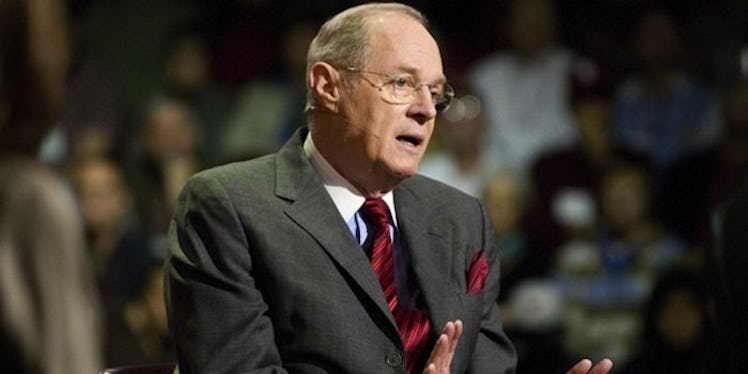
Why S. Carolina Believes Only Straight White Men Deserve Equal Rights
South Carolina has done it again.
The state that brought you the Civil War (or started it, at least) is now going to previously unimaginable lengths to defend their right to discriminate against gays and lesbians.
They've filed an amicus brief with the Supreme Court in preparation for April 28, when the Court will hear a number of cases regarding the legality of bans on same-sex marriage.
South Carolina, unsurprisingly, is not one of the 37 states where gay marriage has so far been made legal, and it wants to keep it this way.
The argument that it's putting forward while trying to hold on to its right to deny gays and lesbians equal rights is, at best out of date and, at worst, sexist, homophobic and hypocritical.
Their main discussion revolves around the Fourteenth Amendment and its Equal Protection Clause, which says that a state must grant “the equal protection of the laws” to all citizens.
South Carolina, of course, does not want to do that in the case of same-sex marriage, and it's really pulling out all the stops to try to prove that this particular form of discrimination is perfectly legal and, in fact, supported by those fine rich white men who wrote the Constitution and all of its subsequent amendments, including the one in question here.
The brief talks a lot about states' rights, which has always been a sticking point for South Carolina (hence the whole Civil War thing), and always in the context of what the writers originally meant, clearly ignoring the almost 150 years that have passed since the amendment was adopted.
This idea is called originalism, and it often conveniently ignores the backwards ideas that the men running the country 150 years ago had – such as keeping schools segregated and not letting women vote, for example.
South Carolina, however, is letting no outdated idea go un-discussed.
The amendment, it claims, was only set up to provide equal protection based on race, and not on the basis of anything else.
In the 1860s, when the amendment was adopted, states had the right to take away a woman's basic rights after she had gotten married, as her husband would then be in control of her and her assets.
No one was quite ready to let this idea go yet, so the writers of the amendment were very clear that by adopting this amendment that seemed to grant equal rights, the rights only went as far as race.
Married women, then, could still be second-class citizens. Phew.
In essence, the amendment only got rid of discrimination against blacks. Lawmakers were free to keep discriminating against women. And if the amendment's original writers allowed that discrimination against women to continue, then they certainly also allowed discrimination against gays.
The writers of the brief wanted to make it clear that they do not actually want to impose these anachronistic, sexist and, frankly, ridiculous laws upon women now – they're just using them as an example of how the amendment was meant to work.
In doing so, however, they're owning up to their desire to discriminate against the LGBT community. This law allows us to take away women's rights, so we obviously don't have to dole out gay rights either.
A noteworthy piece of evidence that they have to contend with in their states' rights argument is that in 1967, the Supreme Court took away the states' rights to ban interracial marriage.
What they're saying, however, is that those were “blatantly racist” products of the Jim Crow era, and since the Fourteenth Amendment covers racial discrimination, it was OK that those particular states' rights were taken away.
The argument against mandating marriage equality is blatantly homophobic, but no one in South Carolina seems quite ready to admit that that is a problem yet.
The problem for supporters of marriage equality is that South Carolina has done its research here, and the brief's argument does seem to have history on its side. The Fourteenth Amendment really did allow for states to limit – or in some cases, eliminate – women's rights.
So what does this mean? We'll see.
It's up to the Supreme Court now, and basically up to Justice Anthony Kennedy – the one swing vote on a deeply divided court. Will they choose to honor the bigotry of men who died over a century ago? Or will they decide that equal rights means just that – equal rights for all?
We'll have to wait until June to see.
Disclaimer: The views and opinions expressed in this article are those of the author and do not necessarily reflect the official position of Elite Daily.
Citations: BRIEF OF AMICUS CURIAE STATE OF SOUTH CAROLINA (supremecourt.gov), Supreme Court Will Hear Gay Marriage Cases On April 28 (Huffington Post), Map Same sex marriage in the United States (CNN), Constitution of the United States Amendments 11 27 (archives.gov), South Carolina to SCOTUS We Can Discriminate Against Women So Why Not Gays (Slate), Anthony Kennedy Biography (biography.com)